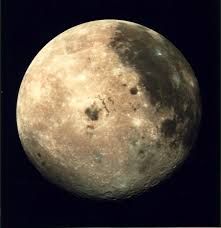 David McKa, a (rocket?) scientist, is arguing that the Moon can be used as the best time capsule and a digital store hose for human history. Essentially it would be modern day Library of Alexandria – but this won’t burn down.
David McKa, a (rocket?) scientist, is arguing that the Moon can be used as the best time capsule and a digital store hose for human history. Essentially it would be modern day Library of Alexandria – but this won’t burn down.
Astronauts would setup a digital store house and could update it with future voyages to the Moon.
Storing things on the moon means no worries about oxygen eroding materials. Other environmental concerns that damage books and other materials on Earth wouldn’t be a problem in outer space. The Moon is also the only place that humans have yet to pillage, and should stay that a way for awhile to come.
 Google
Google